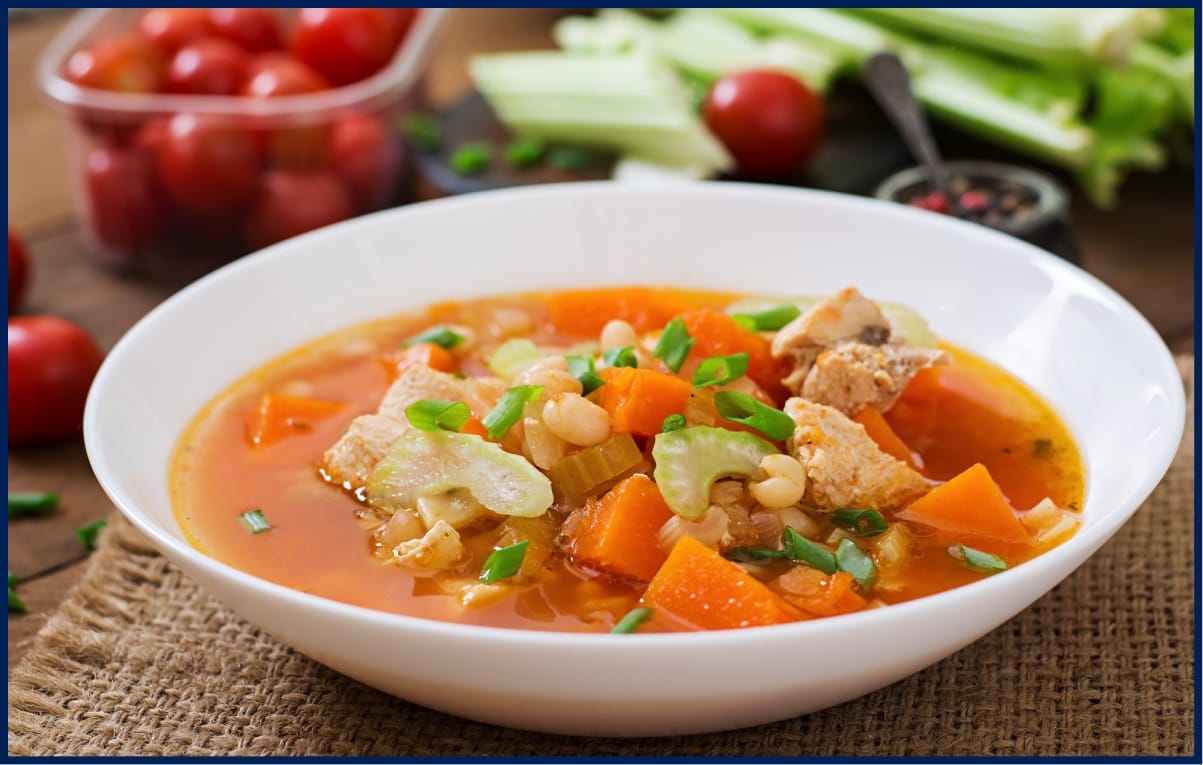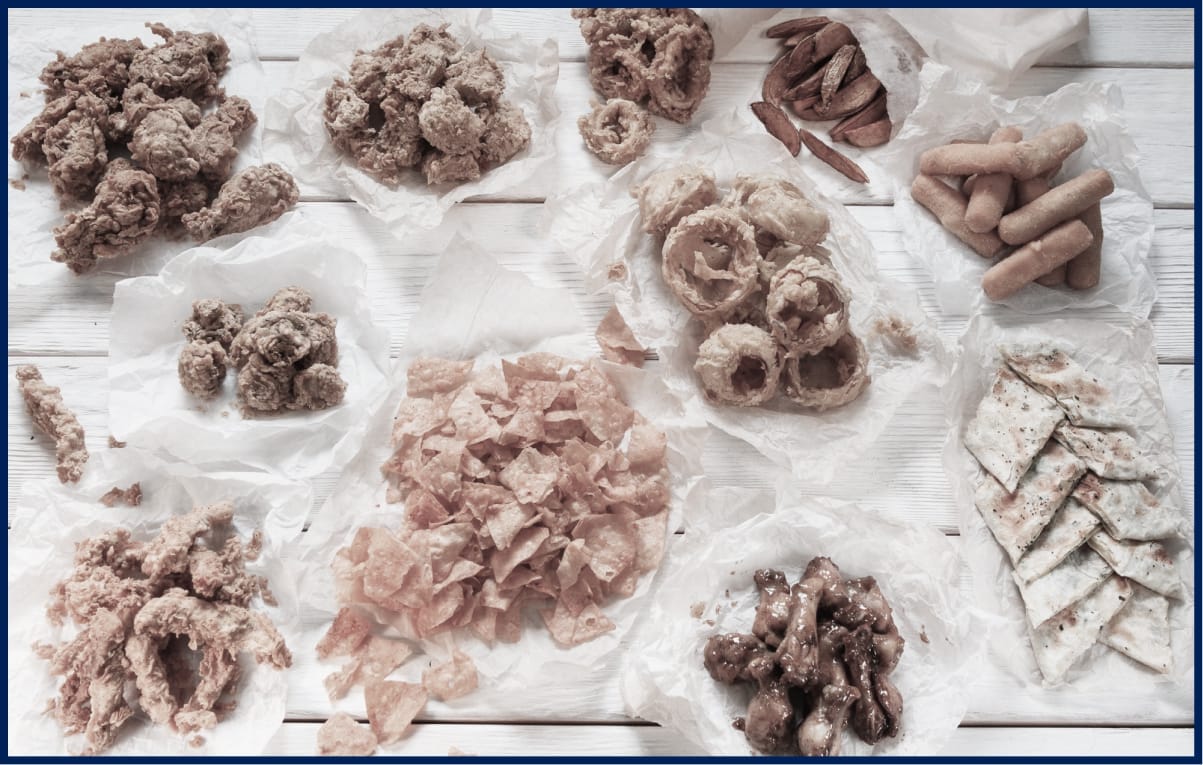That familiar scratch in your throat signals the start of discomfort that can make every swallow a challenge. While over-the-counter medications can help, the foods and drinks you choose play a crucial role in either soothing or aggravating your sore throat. Understanding what to eat—and what to avoid—can make a significant difference in your comfort and recovery time.

Understanding Your Sore Throat
A sore throat occurs when the pharynx becomes inflamed, typically due to several common causes. Let’s examine what triggers this condition and how food choices impact recovery.
Common Causes
Viral infections are the most frequent culprit, accounting for about 85%-95% of adult sore throats, according to the National Library of Medicine. The common cold and flu viruses cause throat inflammation as they replicate in the throat tissues. Bacterial infections, particularly strep throat caused by Group A Streptococcus, create more severe symptoms and often require antibiotic treatment. Allergies can trigger post-nasal drip, which irritates the throat and leads to persistent discomfort.
Why Foods Matter
The interaction between food and a sore throat is primarily mechanical and chemical. The throat’s inflamed state makes it sensitive to:
- Texture: Rough or abrasive foods can further irritate the throat lining
- Temperature: Extreme temperatures affect blood flow and nerve responses
- Chemical composition: Acidic or spicy foods can aggravate inflammation
The Role of Inflammation
Inflammation is your body’s natural defense mechanism, but it creates the characteristic symptoms of a sore throat.
- Swelling of the throat tissues
- Increased sensitivity to touch and temperature
- Enhanced pain response to certain foods and drinks
- Difficulty swallowing due to tissue enlargement

Soothing Foods to Embrace
Warm Liquids
Herbal teas serve as effective natural remedies for sore throat relief. Chamomile tea contains anti-inflammatory compounds that help reduce throat swelling. Licorice root tea creates a protective coating on the throat’s mucous membranes, while sage tea provides antimicrobial benefits. Green tea, rich in antioxidants, supports immune function during recovery.
Bone broth and clear soups deliver essential nutrients while soothing irritated tissues. Chicken soup, specifically, contains carnosine, which has anti-inflammatory properties. Clear vegetable broths provide hydration and minerals necessary for healing. The warm temperature helps increase blood flow to the throat, potentially speeding recovery.
Warm water with honey and lemon combines several therapeutic elements. Honey acts as a natural antimicrobial agent and provides a protective coating for the throat. Lemon contributes vitamin C and helps thin mucus. The optimal temperature should be warm, not hot, to avoid further irritation.
Cool and Soft Foods
Yogurt and smoothies offer protein and probiotics while providing cooling relief. Plain yogurt’s smooth texture soothes irritated throat tissues. When making smoothies, incorporate anti-inflammatory ingredients like berries and bananas. Avoid citrus fruits, which may cause discomfort.
Ice cream and popsicles can temporarily numb throat pain. Choose plain varieties without nuts or hard pieces. Sugar-free options are preferable, as excess sugar may promote inflammation. Fruit-based popsicles provide additional vitamins and hydration.
Applesauce and mashed fruits deliver essential nutrients in an easy-to-swallow form. Applesauce contains pectin, which can help coat and protect the throat. Other suitable options include mashed bananas, pears, and peaches—all fruits good for sore throats thanks to their soft textures. Ensure fruits are thoroughly mashed to avoid any rough textures.
Nutrient-Rich Options
Scrambled eggs and soft proteins provide the necessary nutrients for healing. Eggs offer high-quality protein and zinc, which are important for immune function. Other suitable protein sources include:
- Well-cooked, flaked fish
- Soft tofu
- Greek yogurt
Mashed potatoes and sweet potatoes deliver essential carbohydrates and nutrients. Sweet potatoes contain beta-carotene, supporting immune health. Regular potatoes provide vitamin C and potassium. Be sure to use proper mashing to achieve a smooth consistency.
Cooked vegetables supply vital nutrients while remaining easy to swallow. Steam or boil vegetables until very tender. Recommended options include:
- Carrots
- Squash
- Green beans
- Spinach
Prepare all vegetables thoroughly to ensure maximum softness. Avoid adding spices or acidic seasonings that might irritate the throat.
Related Article: Seasonal Sore Throat Care: How to Stay Ahead of Winter Illnesses

Foods to Avoid and Why
Texture Troubles
Crunchy and rough foods can create significant problems when you’re dealing with a sore throat. Raw vegetables, nuts, seeds, granola, and potato chips act like sandpaper against your inflamed throat tissues. These abrasive textures can scratch the sensitive lining, potentially extending your recovery time and making each swallow more painful than the last.
Dry or hard-to-swallow items demand extra work from your already strained throat muscles. Foods like tough meats, dense breads, and raw fruits with thick skins require excessive saliva production and muscular effort to consume. This additional strain not only intensifies discomfort but can also exhaust throat muscles that need rest to heal properly.
Toast and crackers might seem like safe options, but they’re surprisingly problematic. Even when softened with butter or other spreads, their inherently dry nature and rough edges can scrape against inflamed tissues. These seemingly innocent foods absorb precious moisture from your throat and demand extra effort to swallow, potentially setting back your recovery progress.
Irritating Ingredients
Acidic foods and drinks pose a particular challenge by disrupting your throat’s natural pH balance. Citrus fruits, tomatoes, and their derivatives, vinegar-based dressings, and carbonated beverages can all trigger intense discomfort. The acid in these items can feel like it’s burning your already sensitive throat tissues, potentially prolonging inflammation and delaying healing.
Spicy dishes contain compounds that can feel like they’re setting your throat on fire. Hot peppers, black pepper, wasabi, and even raw garlic or onions can intensify throat pain significantly. These ingredients often trigger coughing fits, which further irritate your throat and create a cycle of discomfort that’s hard to break.
Alcohol and caffeine might be daily staples for many, but they’re best avoided when nursing a sore throat. Both substances contribute to dehydration, which is particularly problematic when your throat needs moisture to heal. Alcohol can irritate throat tissues and potentially suppress immune function, while coffee and strong teas may leave your throat feeling even more raw. Energy drinks are especially problematic as they combine caffeine with acidic ingredients. Furthermore, these beverages may interact with common sore throat medications, potentially reducing their effectiveness.
Preparation Tips and Tricks
Here are essential tips for preparing throat-friendly foods:
- Temperature Management: Always serve hot foods at a warm, not scalding, temperature – if you can’t comfortably hold food in your mouth for a few seconds, it’s too hot. For cold foods like ice cream or popsicles, let them soften slightly before eating to avoid shocking sensitive throat tissues.
- Texture Modifications: Transform regular foods into easier-to-swallow options by pureeing, mashing, or blending them with warm liquids. For example, blend cooked vegetables with broth, mash potatoes with warm milk, or shred well-cooked meats and mix them with gravy for a smoother consistency.
- Quick Soothing Recipe – Honey-Ginger Tea: Create a simple but effective remedy by steeping 4-5 fresh ginger slices in hot water for 5 minutes, then adding a tablespoon of honey once the temperature has cooled to warm. This combination provides both anti-inflammatory and antimicrobial benefits.
- Smoothie for Throat Relief: Blend one ripe banana, a cup of lukewarm milk, a tablespoon of honey, and a quarter teaspoon of turmeric. This smoothie coats the throat while providing essential nutrients. Adjust the thickness by adding more warm liquid if needed.
- Batch Preparation Strategy: When you have energy, prepare larger quantities of soothing foods like blended soups, mashed potatoes, or stewed fruits. Store them in individual portions at appropriate temperatures for easy access throughout your recovery period, reducing the need to cook when you’re feeling unwell.

For Fast-Acting Sore Throat Relief: SoreThroat 911
When discomfort strikes your throat, quick relief becomes a top priority. Certain foods can help you soothe it, but it won’t take the pain away entirely. That’s where SoreThroat 911 comes in.
SoreThroat 911 offers a targeted approach to tackling throat and lymphatic discomfort. This specialized roll-on formula addresses multiple symptoms at once, making it a comprehensive solution for throat-related issues.
The product’s key benefit is its rapid action—users typically feel relief within 30 minutes of application. When applied before bedtime, many find their sore throat symptoms significantly improved by morning, allowing for better rest and recovery.
What sets SoreThroat 911 apart is its unique drainage-promoting formula. The solution penetrates into the glands, helping to relieve congestion in the throat, ear, and sinus areas. This is particularly beneficial for those dealing with:
- Cold and infection-related congestion
- Ear discomfort caused by congestion
- Swollen lymphatic glands
- General throat soreness
The formula incorporates arnica, a natural ingredient known for its potential to reduce swelling and ease pain. This makes it a suitable option for various age groups, though it’s important to consult a healthcare provider before use in children under 2.
One of its most significant advantages is its role in supporting lymphatic drainage. The lymphatic system plays a crucial role in fighting upper respiratory infections, and SoreThroat 911’s formula helps optimize this natural process by encouraging proper drainage and helping the body’s filtration system work more effectively.
The convenient roll-on application ensures precise delivery of the medication where it’s needed most, maximizing its effectiveness while minimizing waste. This targeted approach helps deliver the dramatic results users have reported.
Related Article: Should I Go to Urgent Care for a Sore Throat?
Fast Relief: Your Path to Soothing That Stubborn Sore Throat
When dealing with a sore throat, the combination of proper food choices and targeted relief can make all the difference in your recovery journey. While soothing foods and drinks provide natural comfort, products like SoreThroat 911 offer fast-acting relief through its unique roll-on formula that promotes lymphatic drainage and reduces inflammation.
Remember to be gentle with your throat, choose foods wisely, and consider keeping SoreThroat 911 on hand for those moments when you need quick, effective relief from throat discomfort.


